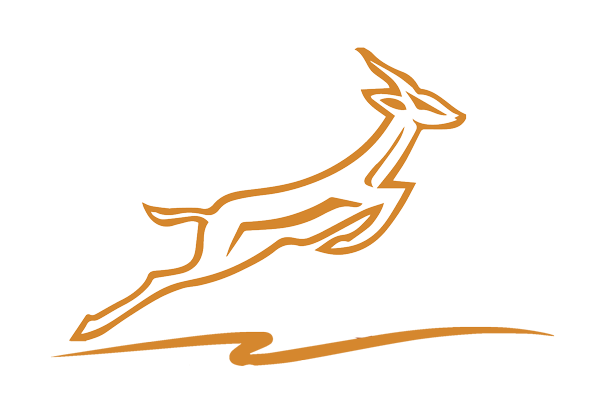THE LEGENDARY KENYA
The Origin of Safari Travel
Big 5 game viewing, incredible natural beauty and cultural encounters
THE LEGENDARY KENYA
The Origin Of Safari Travel
Big 5 game viewing, incredible natural beauty and cultural encounters
Menu
Safety & Security
‘Can I travel to Kenya?’ is a question asked by many travellers, especially first-timers wanting travel advice for this wildlife-rich East African country that is home to the Great Wildebeest Migration over the plains of the Masai Mara.
Although Kenya has been a victim of tragic terrorist attacks, it is important to remember that these are very far from the main tourism hubs. Security has been stepped up at all airports – especially Jomo Kenyatta and Wilson – and at hotels across Nairobi. We will never send a client to any place that we would not visit ourselves; We as travel experts, we created a seamless itinerary that ensured private drivers, trusted suppliers and experienced lodge staff all the way. In addition to knowing where each and every one of our clients is every step of their way, all our travelers also have exclusive access to a 24/7 hotline manned by senior staff in the event of any emergency, no matter how small.
Currency & Spending
Kenya’s national currency is the Kenyan Shilling and although foreign currencies such as US Dollars are widely accepted (and indeed the currency required for activities like hot-air balloon safaris) we’d recommend using local currency to pay for bar bills, souvenirs and meals not included in your itinerary.
Please note that due to the number of fake notes in circulation, no US Dollar bills printed before 2003 are accepted in Kenya and, in fact, your safest bet is to carry notes printed after 2006.
Banking facilities and ATMs are found throughout Kenya’s major travel destinations and all major credit cards are widely accepted, in particular MasterCard, Visa and American Express.
Banking hours are from 9am to 3pm Monday to Friday, and 9am to 11am on the first and last Saturday of the month for most banks.
Tips & Gratuites
Tipping for good service is customary in Kenya although it is of course at your discretion – bear in mind that some of the larger hotels will add a service charge onto your bill. A 10% tip is customary in city restaurants and bars when a service charge is not included.
For in-depth tipping guidelines, enquire with one of our Africa Safari Experts – they’d be happy to share their knowledge with you.
Climate
Average summer temperatures: 20°C / 68°F to 34°C / 93°F
Average winter temperatures: 18°C / 64°F to 29°C / 84°F
Rainy season: mid-March to June (‘long rains’) and October to December (‘short rains’)
What to Pack
For your Kenya safari, pack light casual wear in neutral colours (try to avoid white, black and blue) and a warm jacket for evening game drives.
In Kenya’s major cities the dress code is conservative but not overly formal – jeans and modest tops for women are fine. Swimsuits are acceptable on the beach but you’ll need to cover up in public places.
Etiquette
Kenya is a fairly conservative society, especially where Islam holds sway, and much emphasis is placed on courtesy and manners. Care needs to be taken when photographing local people – always ask permission and prepare to be asked for reward in Kenya’s most popular destinations – but by and large the people of Kenya are easy-going, amiable, humorous and helpful, making travelling and interacting with them a real pleasure.
Flights and Getting Around
Jomo Kenyatta International Airport
East Africa’s major flight hub is located 13km / 8mi outside Nairobi and is the gateway to the Masai Mara, Amboseli, Mombasa and Kenya’s beaches as well as Zanzibar and Tanzania. There are also good connections from here to Uganda, Rwanda and the Seychelles.
Wilson Airport
A regional airport about 90 minutes by road from Jomo Kenyatta, Wilson is the hub for almost all of Kenya’s internal flights and serves its fly-in safari locations. Ensure you have time between your international flight and domestic flight to make the transfer between the two airports.
Moi Mombasa International Airport
Located about 10km / 6.2mi northwest of the town itself, Mombasa’s airport is the gateway to the Kenyan coast.
Chartered flights are a great way to get around Kenya and avoid the country’s often dirt roads; transfers from airstrips to lodges are conducted in 4X4 vehicles.
Road transfers from airports and between major destinations tend to use mini buses as do scheduled safaris to popular destinations such as the Masai Mara. Sliding windows and a pop-up roof provide passengers on mini buses with ample viewing opportunities on game drives whereas safaris to more remote destinations and private conservancies use open-sided 4X4s.
Visa and Passport Requirements
Visas are required by most visitors to Kenya including British, American, Canadian, European, Australian and New Zealand passport holders. Citizens from some smaller Commonwealth countries are exempt.
Visas are valid for three months from the date of entry and can be purchased upon arrival at Jomo Kenyatta International Airport. Visitors can pay for their visas in local currency and they must possess a passport that is valid until six months after the initial date of travel.
If you plan on travelling onwards from Kenya, visas for other East African countries such as Tanzania and Uganda can generally be obtained in Nairobi for around US$50 each.
